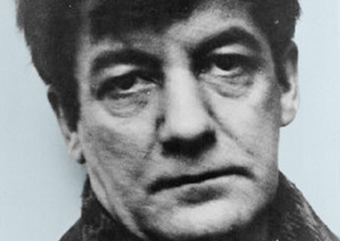
In this contemplative letter to his son John, then twenty-three, Sherwood Anderson philosophizes on his craft, the pleasures of solitude, and the relation of painting to writing.
[July 1931, Marion]
Dear John,
I guess those apparently loose unorganized thoughts and even visions that come have some purpose after all. It takes time, I guess, to find out. I get a long story started and sometimes it breaks in two. Some minor character comes in, as though a stranger had suddenly walked into a house. That changes everything. The new person may be absorbingly interesting.
You try to bend the new one into what ever you are doing and pretty often it spoils all.
Just the same it is something. There is the new one also wanting his, or her, story really told.
Life is like that too. You love someone, a woman say. So you think you are all fixed. Then suddenly you see a new woman you love more.
I imagine that in painting also one impression often overlaps another that way. You are lucky when you get an impression so strong that, in spite of everything, it comes back and back, so you can work steadily a long time.
I guess it’s better to keep on working loosely. I know with me, for two or three years now, all has been too loose. I have written most of several novels that have to be thrown aside. There was a reaching after something I wasn’t getting. I begin to get it now a little I think so I work more steadily.
I sent off Perhaps Women, to be printed, and [Julius John] Lankes made a wood block for it. The clay hasn’t come yet. I don’t know that it matters as I write every day until I am exhausted. Next month Eleanor will be here for the whole month. Pretty often I go out along the river now in the late afternoon, taking a fly rod. I wade in the river and cast for bass. I don’t get many but it is nice to be out like that. Bob is still too restless for steady company. I want to be alone and think out my own problem.
It’s a bit different than painting and must tremendously take people in. That’s why it must have something that is NOW in people’s feelings . . . maybe they haven’t found out about themselves. You have to feel for that.
I become perhaps revolutionary. It is partly because I am trying to find out what happened to a young revolutionist who got killed, about whom I am writing [in Beyond Desire], how he got that way, what it meant to him, etc.
You give yourself more and more to that mood.
Often it happens that these side visions, of which you speak, are something. It may be with painting as with writing. There is something you thought you have got hold of but hadn’t. The sub-conscious or, anyway, something in you, is trying in this way to tell you. It is often that way with me.
I had to have two teeth out and have few enough as it is. I’m well and so is Bob. He is working like a nailer. Love to Charles [Bockler] and all the house there.
S.A.
FURTHER READING
Listen to a reading of Sherwood Anderson’s short story “Certain Things Last” with commentary by Ben Marcus, novelist and fiction editor of The American Reader, here.


